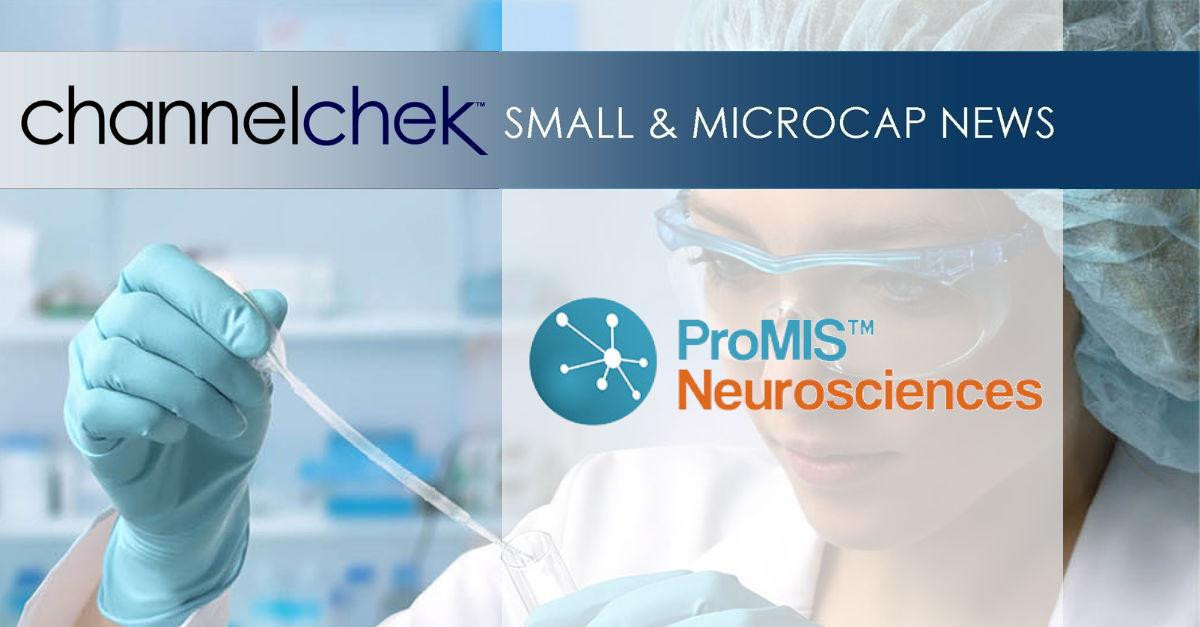ProMIS Neurosciences to Showcase PMN310's Ability to Target Toxic Oligomers and Distinguish from Other Amyloid-Beta Oligomers in Preclinical Studies at the 4th International Conference on Cognitive & Behavioral Neurosciences
ProMIS Neurosciences Inc. (Nasdaq: PMN), a biotechnology company specializing in antibody therapeutics for neurodegenerative diseases like Alzheimer's disease (AD), amyotrophic lateral sclerosis (ALS), and multiple system atrophy (MSA), will present preclinical data on its lead product candidate, PMN310, at the 4th International Conference on Cognitive & Behavioral Neurosciences (ICBN). The conference will be held from September 12-13, 2024 in Lisbon, Portugal.
Targeting Toxic Oligomers in Alzheimer's Disease
The scientific community has recognized that the most pathogenic form of amyloid-beta (Aß) in AD is not insoluble fibrils or monomers, but rather soluble toxic oligomers. These toxic oligomers have been shown to be potent neurotoxins, binding to neurons, inhibiting synaptic function, and ultimately driving neurodegeneration. The ability of a therapeutic antibody to target these toxic AßOs without interacting with non-toxic species is crucial for maximizing efficacy.
PMN310: A Novel Approach for Targeting Toxic Oligomers
PMN310 is a next-generation antibody designed to target toxic oligomers with high selectivity. This selective targeting is key to addressing the growing evidence that soluble AβOs are a primary driver of the neurodegenerative process in AD.
PMN310: A Promising Candidate for Alzheimer's Disease Treatment
The preclinical data presented at ICBN further solidifies PMN310 as a potential treatment for AD. The research demonstrates that PMN310 distinguishes itself from other Aß-directed antibodies due to its enhanced selectivity for toxic oligomers. The ability of PMN310 to avoid interaction with plaque and vascular deposits of amyloid-beta could potentially reduce the risk of amyloid-related imaging abnormalities (ARIA), a significant side effect associated with plaque-binding antibodies.
Key Findings from Preclinical Studies
The preclinical studies revealed that PMN310 exhibits minimal to no interaction with monomers and is less affected by excess monomer competition when binding to toxic oligomers in AD brain extract. This specificity for toxic oligomers makes PMN310 a promising candidate for AD treatment.
PMN310's Unique Profile
The data highlighted in the presentation will showcase PMN310's potential advantages over other Aß-directed antibodies. PMN310's ability to target toxic oligomers while minimizing interactions with other Aß species may lead to improved efficacy and a better safety profile.
Clinical Development of PMN310
In July 2024, ProMIS Neurosciences reported positive topline data from the first four cohorts in its Phase 1a clinical trial of PMN310. These initial results demonstrated that PMN310 met its objectives for tolerability, safety, and pharmacokinetics. The Company expects to release topline results from all five cohorts in the coming months and is on track to advance PMN310 into a Phase 1b study in the fourth quarter of 2024.
A Light at the End of the Tunnel for Alzheimer's Patients
The promising preclinical data and positive Phase 1a results for PMN310 represent a significant step forward in the fight against Alzheimer's disease. With continued research and development, PMN310 has the potential to offer a new therapeutic option for patients battling this debilitating disease, bringing hope for a brighter future.

















